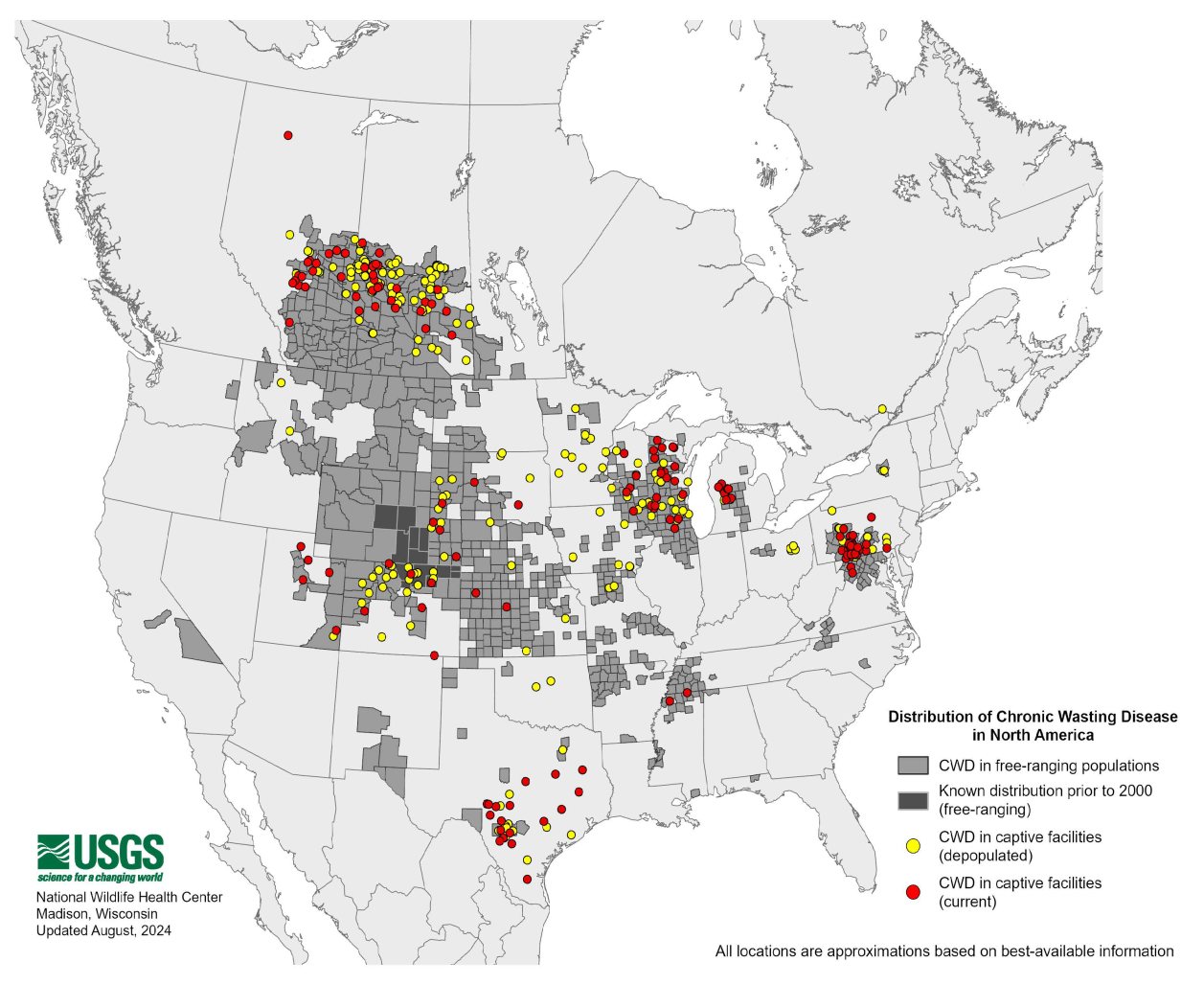Statewide CWD Regulations
Below are statewide hunting regulations intended to limit the spread of Chronic Wasting Disease (CWD). Regulations specific to the CWD Surveillance Areas can be found on the CWD Surveillance Area Regulations page.
Use of Natural Deer Attractants/Scents While Hunting
No person shall possess or use any substance or material that contains or is labeled as containing any excretion collected from a cervid, including feces, urine, blood, gland oil, or other bodily fluid for the purposes of taking or attempting to take, attracting, or scouting wildlife. This prohibition shall not apply to the following substances:
- Synthetic products that are labeled as such.
- Products containing natural substances collected by a hunter from a cervid legally harvested in North Carolina.
- Natural deer urine and other substances collected from a facility in North Carolina with a valid Farmed Cervid License from the North Carolina Department of Agriculture and Consumer Services (NCDA&CS) and identified/labeled as such.
- Products labeled as participating in the Responsible Hunting Scent Association’s Deer Protection Program.
Additional restrictions on the possession and use of cervid excretions apply within CWD Surveillance Areas and can be found on the CWD Surveillance Area Regulations page.
Rules for Importation of Deer Carcasses and Carcass Parts
Importation of whole carcasses from any member of the family Cervidae (e.g., deer, elk, moose, or reindeer/caribou) from any state, Canadian province, or foreign country outside of North Carolina is prohibited. Anyone transporting cervid carcass parts into North Carolina must follow processing and packaging regulations, which only allow the importation of:
- Meat that has been boned out such that no pieces or fragments of bone remain
- Caped hides with no part of the skull or spinal column attached
- Antlers, antlers attached to cleaned skull plates, or cleaned skulls free from meat, or brain tissue
- Cleaned lower jawbone(s) with teeth or cleaned teeth; or
- Finished taxidermy products and tanned hides.
All carcass part(s) or container of cervid meat or carcass parts must be labeled or identified with the:
- Name and address of individual importing carcass parts
- State, Canadian province, or foreign country of origin
- Date the cervid was killed; and
Hunter’s license number, permit number, or equivalent identification from the state, Canadian province, or foreign country of origin.

These rules are intended to prevent the unintentional transportation and release of Chronic Wasting Disease (CWD) into the environment. CWD is a fatal neurological disease found in deer, elk, moose and reindeer/caribou, and can have devastating long-term effects to cervid herds and hunting. The infectious agent of CWD can contaminate new environments by way of disposal of carcass tissues, particularly those of the brain and spine. The number of states that have documented CWD continues to
increase; at the time of publishing, 36 states are known to have detected CWD. North Carolina first detected CWD in March, 2022, and currently has detected CWD positive deer in six counties.
